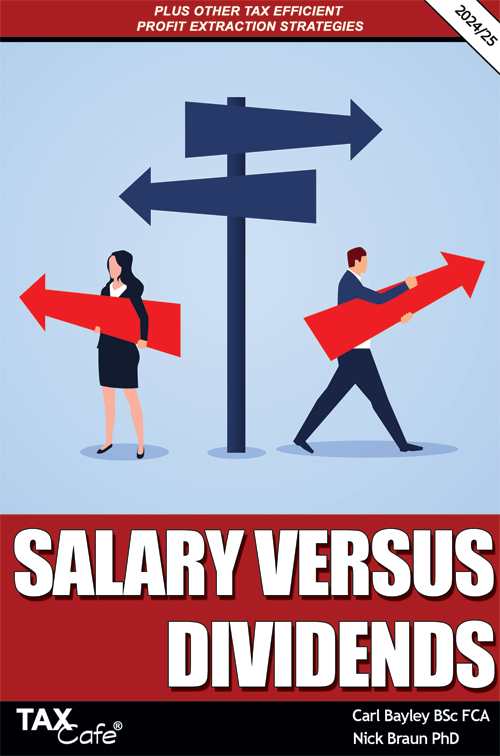Salary or Dividends Tax Planning Guide 2025/26
Up until recently it was optimal for many company owners to take a small salary equal to the personal allowance (currently £12,570) and the rest of their income as dividends.
In some cases (for example where the director had income from other sources) it was optimal to take a smaller salary equal to the employers national insurance threshold (previously £9,100 but now reduced to just £5,000).
However, recent tax changes have made larger salaries more tax efficient than dividends in many cases.
These tax changes include:
* The 2023 increase in corporation tax rates (from 19% to 26.5% in some cases). This means salaries can enjoy more tax relief as a business expense. Dividends are paid out of profits that have already been subjected to corporation tax and may therefore be more heavily taxed.
* The recent increase in the national insurance employment allowance from £5,000 to £10,500 which allows some company owners to pay themselves a larger salary free from employers NI.
* The reduction in the main rate of employees national insurance from 12% to 8%, making salary income less heavily taxed than before.
How much salary or dividend is tax efficient depends on your personal circumstances, including your age, the amount of profit your company makes and whether the employment allowance is available.
The amount of salary you pay yourself is also affected by how much income you have from other non-company sources, for example rental income from properties.
For a full discussion of this important topic see the Taxcafe guide Salary versus Dividends. The latest edition shows you how much salary or dividend you should pay yourself during the current tax year. And many readers will find that a larger salary is now more tax efficient.
The guide also covers other company profit extraction techniques including getting your company to pay you rental income, interest income and make pension contributions on your behalf.
In some cases these alternative profit extraction techniques will save you more tax than paying yourself more salary or dividend income.
Salary or Dividend: the Basics
Unlike self-employed business owners (sole traders and partnerships), company owners are in the fortunate position of wearing two caps.
On the one hand, you can reward your work as a director; on the other hand, you can reward your entrepreneurship as a shareholder.
As a company director and shareholder you can split your income into salary and dividends and this can generate Income Tax and National Insurance savings.
For example, while National Insurance is payable on salaries, it is not payable on shareholder dividends.
By structuring distributions from your company carefully and taking the ‘optimum’ amount of salary and dividends, you could end up with a significantly higher after-tax income than a regular salaried employee who earns a higher income before tax.
However, while saving Income Tax will be an important consideration, other factors are important too. The major differences between a salary and dividend are:
Salaries Are Tax Deductible
Salaries usually qualify for Corporation Tax relief, dividends do not. If the company pays you a salary, its taxable profits will be reduced and it will pay less Corporation Tax.
Dividends are paid out of a company's after-tax profits, so paying a dividend does not reduce the company's tax bill.
This is an important point to remember because most company owners are concerned about both their own and their company's tax bill.
For example, if a company has a taxable profit of £10,000, it will pay £1,900 Corporation Tax (19%), leaving only £8,100 to distribute as dividends. This Corporation Tax must be added to any Income Tax paid by the shareholder on their dividend income when calculating the total tax suffered.
Dividends Require Profits
Only companies that have made profits can pay dividends. Profits are usually calculated when the company's annual accounts are drawn up (often many months after the end of the company's accounting period).
So dividends will usually be paid out of profits made in a previous accounting period. It is, however, possible to pay dividends out of profits made during the current year, for example if accurate management accounts are drawn up to determine the level of the company's distributable profits (see Chapter 41).
Salaries can be paid even if the company is making losses.
Income Tax and National Insurance
Salaries and dividends are subject to different rates of Income Tax.
Salaries are generally subject to National Insurance, dividends are not. Both the director and the company may be subject to National Insurance.
Tax Payment Dates
The Income Tax and National Insurance payable on salaries is collected almost immediately via PAYE. The Income Tax on dividends is collected via self-assessment: generally at a later date.
Earnings
Salaries are classed as "earnings", which is important if you want to make significant pension contributions personally. Dividends are not classed as earnings.



